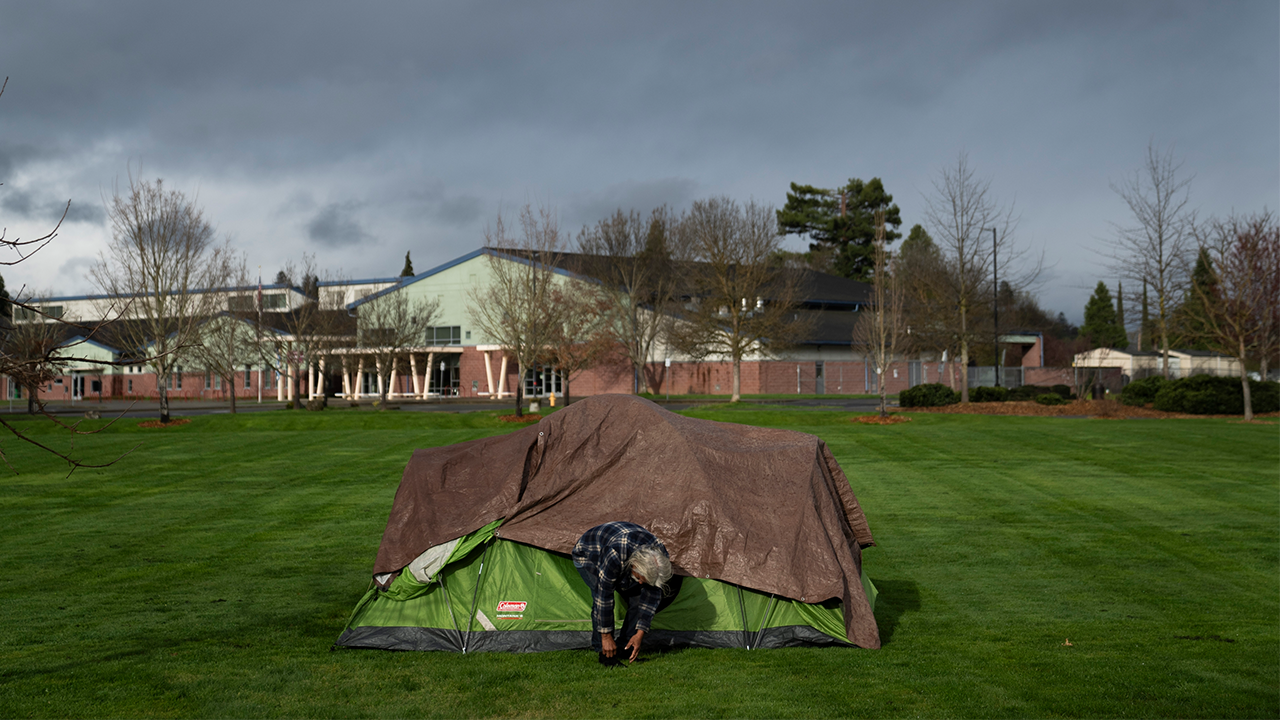Judge blocks Oregon city at center of SCOTUS homelessness ruling from enforcing ban on encampments

An Oregon judge has issued a preliminary injunction blocking a rural city at the center of a U.S. Supreme Court ruling on homeless encampments from enforcing camping restrictions unless certain conditions are met. Josephine County Circuit Court Judge Sarah McGlaughlin ruled Friday that the city of Grants Pass must increase capacity at locations the city approved for camping and ensure the sites are physically accessible to people with disabilities.
If the city fails to meet those conditions, the judge’s order prohibits the city from citing, arresting, or fining people for camping on public property. It also prevents the city from forcing people to leave campsites, from removing campsites that are not clearly abandoned, or from prohibiting camping in most city parks. The city may still enforce rules banning sleeping on sidewalks and streets or in alleys and doorways.
Mayor Clint Scherf expressed disappointment at the judge’s order, while the city’s information coordinator, Mike Zacchino, stated that the city was reviewing all aspects to make the best decision for the community. The lawsuit that sparked the case, filed by Disability Rights Oregon, argued that the city was discriminating against people with disabilities and violating a state law requiring camping regulations to be “objectively reasonable.”
Grants Pass has been grappling with a homelessness crisis for years and has become a focal point in the national debate on how to address the issue. Many of the city’s parks have seen encampments affected by drug use and litter. Last summer, the U.S. Supreme Court ruled that communities can ban sleeping outside and fine violators, even when there is insufficient shelter space.
Following the Supreme Court ruling, Grants Pass restricted camping on all city property except designated sites approved by the City Council. However, the city later closed the larger of the two designated sites, which housed approximately 120 tents. The smaller site’s operating hours were also reduced, making it inaccessible to people with disabilities due to loose gravel.
In response to the lawsuit, the city reopened the smaller site and extended the allowed duration for residents to four days. Judge McGlaughlin’s order mandates that the city must increase capacity back to its previous levels before the larger site was shut down.
Tom Stenson, deputy legal director for Disability Rights Oregon, commended the ruling as a reasonable solution. He emphasized the importance of providing adequate space and resources for homeless individuals, highlighting the need for compassion and practical solutions to address the homelessness crisis.
The city of Grants Pass continues to navigate the complexities of homelessness and camping regulations, seeking to balance community needs with the rights and well-being of vulnerable populations. As the debate over homelessness policy rages on, it remains crucial for cities to approach the issue with empathy, fairness, and a commitment to finding sustainable solutions for all residents.




